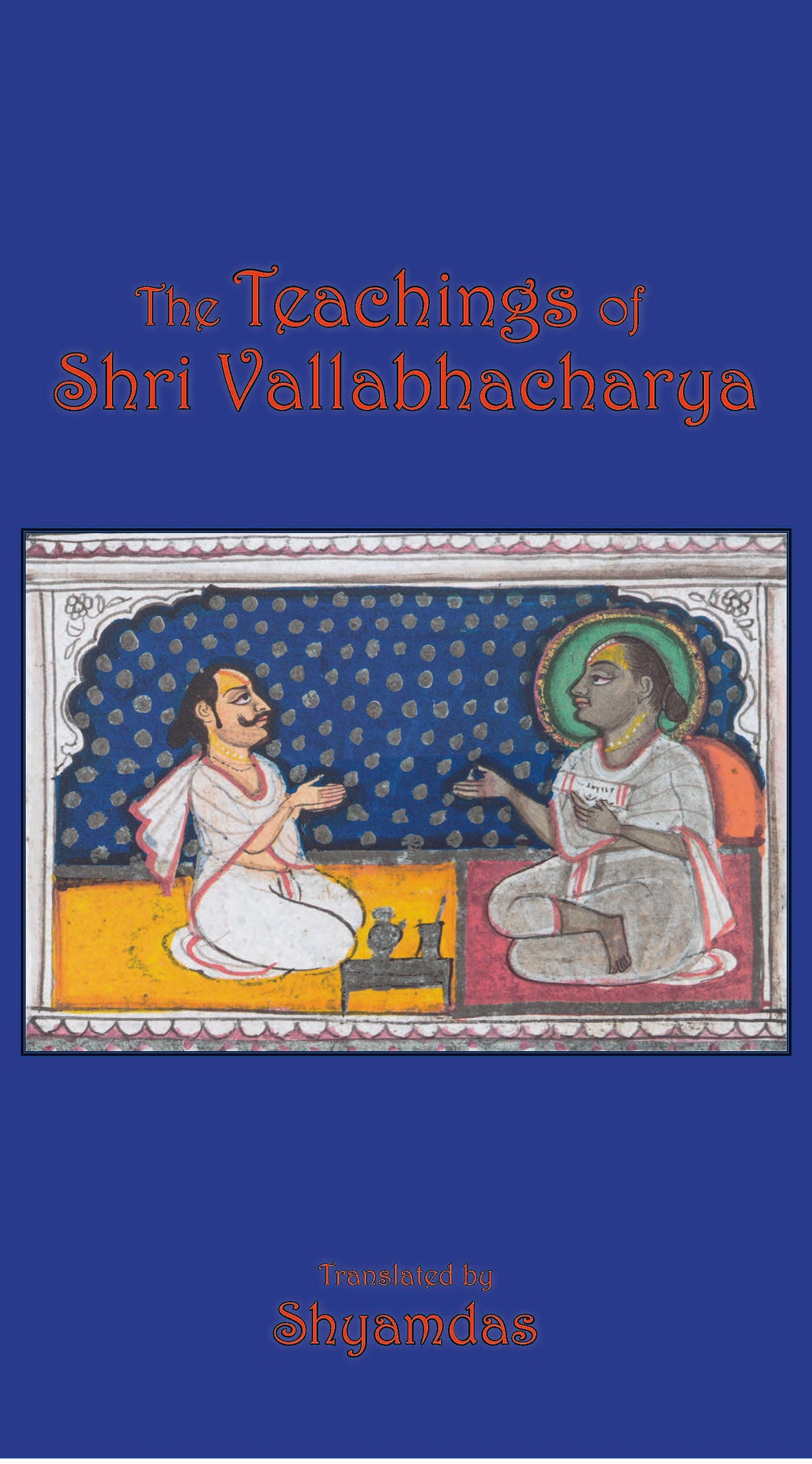
The Teachings of Shri Vallabhacharya, by Shyamdas (Third Edition)
Regular price
$29.99
Sale
Shri Vallabhacharya (1479-1531) is the beloved founder and teacher (acharya) of the path of grace (pushtimarg) and proponent of the philosophy of pure non-dualism, Shuddhadvaita Vedanta. Shri Vallabhacharya's Sixteen Works (Ṣoḍaśa Granthāḥ) are presented here in Sanskrit devanagari and Roman transliteration, alongside original English translations by the American-born devotee and scholar Shyamdas. These sixteen essential doctrines provide a comprehensive study of grace-filled devotion (pushti bhakti) from deeply philosophical and intimate devotional perspectives. To read and recite these works is the most direct approach to comprehend Shri Vallabhacharya's path of grace.
Shri Vallabhacharya, also affectionately referred to by his disciples as Shri Mahaprabhuji, was born in South India in 1479 CE as a Telugu Brahmin. He established a Vaishnava philosophy and lineage that is followed around the world even today by faithful devotees of Lord Krishna. Shri Mahaprabhuji not only embodies the inner beauty of the divine lovers Radha and Krishna, but he is also a perfect witness to their lilas, or loving plays. His devotional teachings continue to transmit refined empowerments. Vallabhacharya taught that devotion is perfected by offering one's body, wealth, mind and heart to the blessed lord. Shri Mahaprabhuji's pushtimarg is a purely non-dual bhakti path that embraces a positive worldview. He fashioned his teachings to fit into this world, which is Shri Krishna's perfect creation. Everything is Krishna and nothing but Krishna. All objects in the world-and the world itself-are flawless. Maya, illusion, is simply a matter of false perception. Devotees are not preoccupied with liberation or any form of yogic practice; they are obsessed with seva-loving, pleasing service offered to the beloved. Shri Krishna responds to devotion, and that is why Shri Vallabhacharya has said, "He is the lord of sweetness."
3rd edition (2021)
Hardcover, 262 pp.
